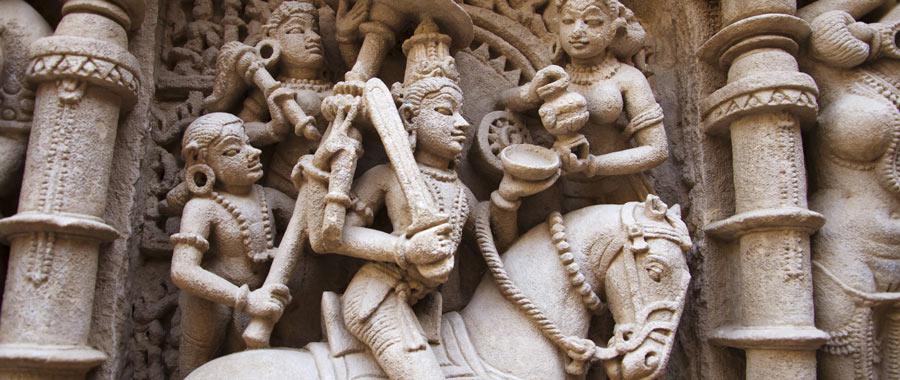The intersection of religious beliefs often gives rise to intriguing dialogues, particularly when examining the intricate tapestries woven by differing spiritual traditions. One such intriguing dialogue emerges at the junction between Hindu eschatology, specifically the figure of Kalki, and the Bahá’í Faith. The Bahá’í teachings present a unique perspective on prophetic expectations that may neatly coincide with, yet simultaneously critique, the complexities inherent in Hinduism’s multifaceted prophecies.
At the heart of Hindu beliefs lies the prophesied figure of Kalki, anticipated as the tenth and final avatar of Lord Vishnu. According to traditional Hindu texts, Kalki is expected to manifest in a future age—one characterized by moral decay and corruption. He is to eradicate this malevolence and restore righteousness (dharma), thereby initiating a new cosmic cycle. This narrative captivates the imagination with its vivid imagery of destruction and renewal, yet it also embodies a conflation of hope and inevitability that many find challenging to interpret. The prospect of such a savior figure raises pertinent questions about the nature of prophecies in the broader religious context.
The complexity surrounding Hindu prophecies is multifaceted. They are not homogenous; instead, they reflect an intricate interplay of cultural interpretations, geographic variations, and philosophical discourse. This fluidity of understanding can lead to substantial divergences in the interpretation and anticipation of the Kalki figure. Some adherents may embrace a literal reading while others prefer a metaphorical approach, viewing Kalki not merely as a future entity but as a representation of ongoing inner transformation and evolution. This interpretative flexibility can engender disorientation and dogmatism, as varied sects struggle to reconcile their beliefs with changing spiritual paradigms.
The Bahá’í Faith, established in the 19th century, emerges as a contemporary framework that not only recognizes the symbolic dimensions inherent in prophecies but also possesses a distinct methodology for interpreting such narratives. At the core of Bahá’í teaching lies the assertion of progressive revelation, a principle that posits all major world religions, including Hinduism, as part of a unified continuum of divine guidance. This perspective invites a reexamination of Kalki and his anticipated arrival, situating him within the larger context of ongoing divine instruction, rather than as a singular event confined to a future timeline.
Bahá’ís perceive the manifestations of God—including Jesus, Muhammad, and Bahá’u’lláh—as fulfilling prophetic roles that transcend specific cultural contexts. This conception allows for a reframing of Kalki’s narrative as connoting a broader, more universal reality—one that emphasizes the need for personal and collective transformation rather than awaiting a singularly catastrophic redemption. Thus, Kalki could symbolize not just a future savior but the potential within each individual to bring about a moral and spiritual revival in their own lives and communities.
This radical reframing promises to diminish the paralyzing anticipation associated with complex prophecies. Instead of fostering a passive wait for external salvation, Bahá’í teachings invite individuals to engage actively with their spiritual destinies. Each person is endowed with the capacity to embody the principles of justice, unity, and love, which are integral to a world ripe for transformation. This empowerment fosters a proactive mindset conducive to constructive social change—essentially a call to action rather than passive anticipation.
Moreover, the Bahá’í Faith urges its followers to cultivate a perspective that acknowledges and respects the diversity of interpretations present within other religious traditions, including Hinduism. Such an approach lays the groundwork for interfaith dialogue and cooperation. By recognizing the significance of prophetic figures like Kalki, Bahá’ís can engage constructively with Hindu adherents, fostering mutual understanding over divisive dogma. This transcultural articulation not only facilitates an exchange of ideas but also enriches the spiritual and intellectual landscape of all involved parties.
It is also noteworthy to consider the ethical dimensions of prophecy as examined by Bahá’í principles. The anticipated arrival of Kalki, heralded as a transformative force against immorality, serves as a poignant reminder of the ethical responsibilities shared by all human beings. In light of contemporary social issues—ranging from environmental degradation to systemic injustice—it becomes increasingly pertinent that individuals embody the virtues associated with their faith traditions. The Bahá’í emphasis on personal accountability and community responsibility resonates strongly here, offering a constructive framework for grappling with the ethical implications of awaiting a savior.
In embracing the pluralistic nature of divine revelation, the Bahá’í Faith posits an expansive dialogue that invites followers from diverse backgrounds to investigate the nuances of spiritual prophecies without falling prey to rigid interpretations. This invites curiosity and ultimately nurtures an environment where different perspectives can coalesce in constructive and meaningful ways.
In conclusion, the relationship between Kalki and the Bahá’í Faith exemplifies a broader conversation regarding prophetic interpretation and its implications for spiritual practice and community engagement. Instead of shackling believers to a future devoid of agency, Bahá’í teachings encourage a profound reevaluation of prophecies—a call not to wait passively, but to rekindle hope by actively contributing to ongoing transformation and striving for a just and harmonious world. Such an approach not only respects the rich complexities of Hindu prophecies but also promises a shift in perspective crucial for thriving in today’s multifaceted spiritual landscape.
